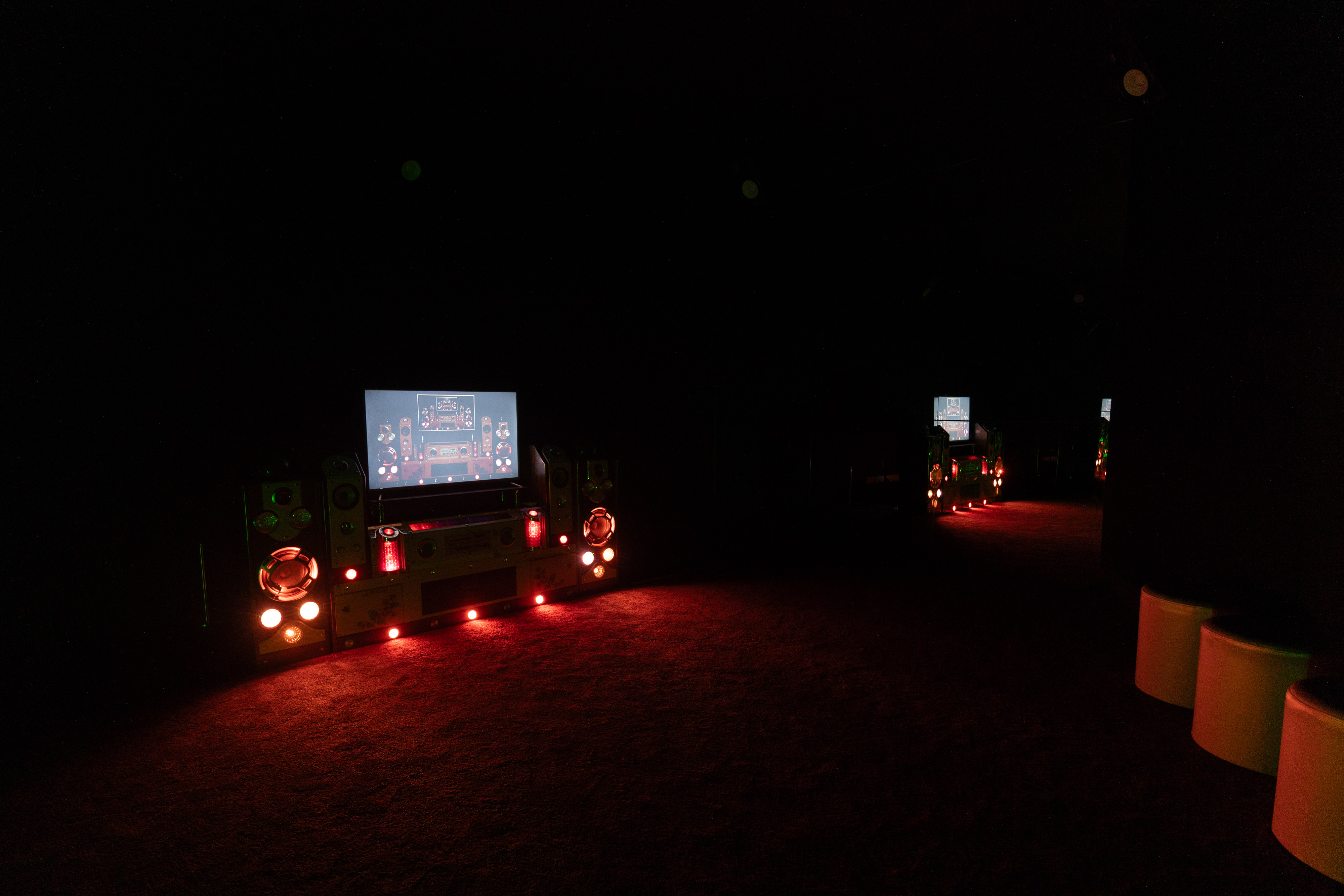Liu Chuang
1978, Tianmen (China)
Lives and works in Shanghai (China)

Gluttonous Me, 2018
Audiovisual installation
EVD, home entertainment system (walnut cabinet, Atman television, amplifier, PC computer, 7 JBL loudspeakers, 1 JBL bass speaker, 7.1 surround sound system, plastic lampshades, LED light control system, mirror
Variable dimensions
24 min. 24 sec.
Courtesy of the artist and Antenna Space
Over the past fifteen years, Liu Chuang’s protean body of work has focused on the rapidly changing environment of China. His famous series of found objects, Buying everything on you, begun in 2006, is the result of conversations and transactions the artist initiated with young people looking for work when they arrived in the city of Shenzhen, a former fishing village that in the space of three decades has become a metropolis of over twelve million people. Liu Chuang’s most recent works take as their starting point the transformations of the territory associated with the production of electrical energy and the extraction of rare metals.
Produced in 2018, the audiovisual installation Gluttonous Me was conceived at the same time as the video triptych Bitcoin Mining and Field Recordings of Ethnic Minorities, using the same materials. Composed of digital video and an old-fashioned domestic sound and image broadcasting device, the work immediately reveals a subtle technological dyschrony. His imaginary narrative weaves together science fiction films, ethnomusicological sources and archive footage reminiscent of the dissemination of pop music in large urban areasi. While the equipment testifies to the last days of analogue high fidelity, the image at its centre, almost like an altar, makes extensive use of digital morphing to create an unstable, plastic vision in constant evolution. Real landscapes take on a dreamlike quality, and depictions of aliens in films by Steven Spielberg (Close Encounters of the Third Kind, 1977) or James Cameron (Avatar, 2009) mingle with faces evocative of distant tribes.
Resembling the dashboard of a spaceship, Liu Chuang’s assemblage recalls the late distribution of television and stereo music in the remote mountainous regions of southern China, using obsolete or second-hand equipment. The ethnic minorities he portrays in his work seem to have a relationship with technology that is both magical and utopian. The use of mirrors creates infinite reflections, adding to the magnetic attraction of a floating space-time where folk songs, futuristic fantasies and archives of a possible musical sociology come together.